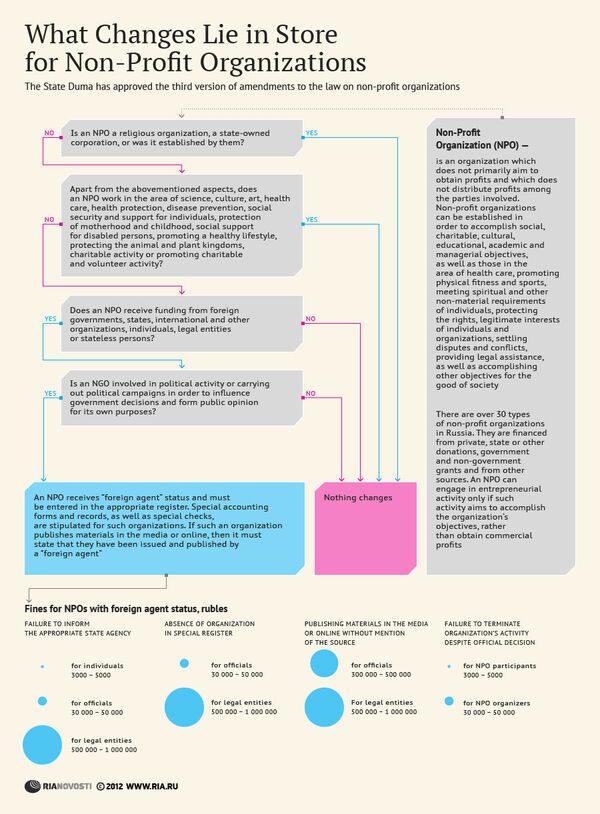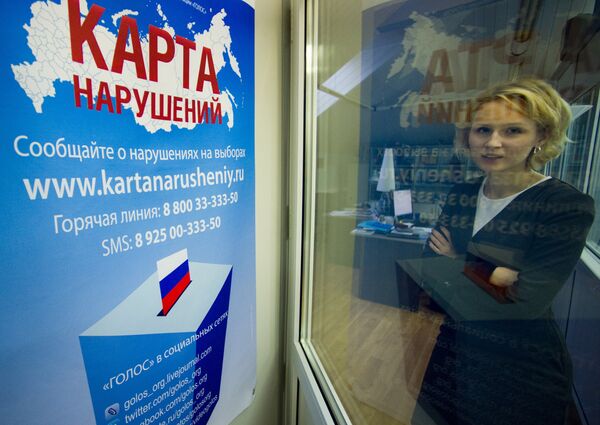MOSCOW, April 25 (RIA Novosti/RAPSI) – Russia's Golos Association, an independent election monitoring NGO, will probably have to close, its director said after the organization was fined 300,000 rubles (around $10,000) for failing to register as a "foreign agent."
Moscow's Presnensky District Court ruled on Thursday that Golos’ refusal to register as a "foreign agent" under new legislation is an administrative offense.
Golos is the first NGO to face administrative charges following the introduction of the new NGO law last November, which requires any organization involved in political activities and receiving financing from abroad to register as a "foreign agent." That term, to most Russians, is synonymous with spying.
Golos director Lilia Shibanova insists the organization has not received a cent from abroad since the new law came into force, and said the association will do all it can to challenge the court ruling, adding, however, that there was little chance of success.

The case against the NGO was based on the allegation that Golos received a sum of money as part of the Andrei Sakharov Freedom prize it was awarded by the Norwegian Helsinki Committee in 2012.
Akhmetgaliyev said the association had returned the money.
Lyudmila Alexeyeva, a veteran Russian human rights activist and head of the Moscow Helsinki group, told RAPSI legal news agency she does not consider Golos to be a political organization. Election monitoring is “not politics but a civil right,” she said.
Golos has been active and vocal in publicizing violations in federal and regional elections in recent years, most notably during the December 2011 State Duma elections, which were followed by large-scale protests against electoral fraud.
The organization was one of 11 Russian NGOs that lodged a complaint with the European Court of Human Rights about the “foreign agents” law back in February. It was also one of the organizations that until recently received some funding from the United States Agency for International Development (USAID). That organization closed down its operations in Russia in October last year at the request of the Russian authorities.
The government has claimed the new NGO law is necessary to prevent the possibility of interference by foreign states in Russia's internal affairs.
The Russian government has launched a series of inspections of NGOs in recent weeks that human rights campaigners describe as unprecedented in their scale. The government claims the inspections are routine and legal, while the NGOs see them as part of a systematic crackdown by the state on their activity.


